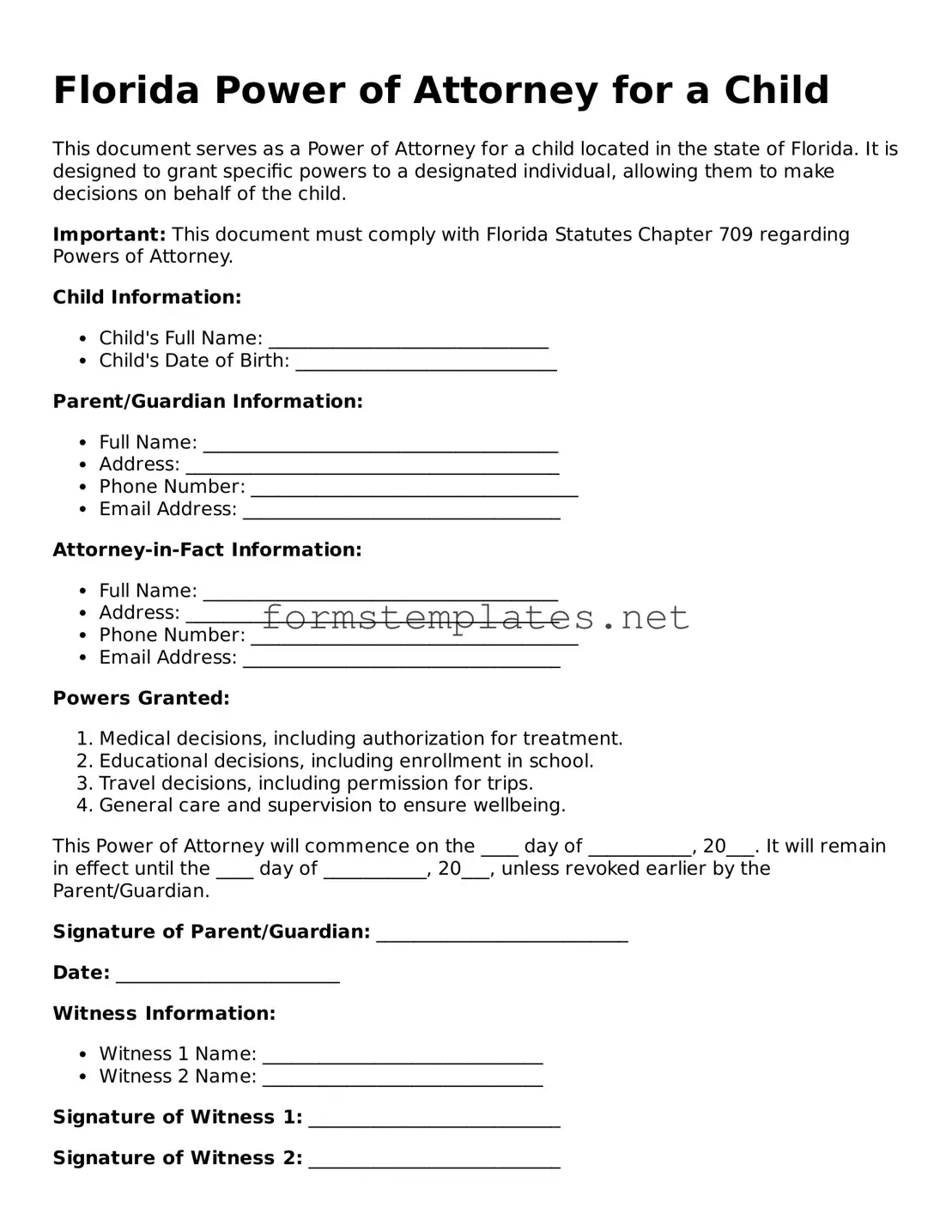What is a Florida Power of Attorney for a Child?
The Florida Power of Attorney for a Child is a legal document that allows a parent or guardian to designate another adult to make decisions on behalf of their child. This can include decisions about education, healthcare, and general welfare. It is particularly useful for situations where the parent or guardian cannot be present to make those decisions.
Who can be designated as an agent?
Any responsible adult can be designated as an agent in the Power of Attorney for a Child. This can include relatives, family friends, or trusted neighbors. However, it is essential to choose someone who understands the responsibilities involved and is willing to act in the child's best interest.
Yes, the form must be signed in the presence of a notary public. This adds a layer of authenticity and ensures that the document is legally binding. Some situations may also require witnesses, so it's important to check the specific requirements for your case.
How long does the Power of Attorney for a Child remain in effect?
The Power of Attorney for a Child can remain in effect for a specified period, as indicated in the document. If no expiration date is provided, it generally remains valid until the child reaches the age of majority, which is 18 in Florida. However, the parent or guardian can revoke it at any time.
Can the Power of Attorney for a Child be revoked?
Yes, the Power of Attorney can be revoked at any time by the parent or guardian. To revoke the document, a written notice must be provided to the designated agent and, if possible, to any third parties who may rely on the document.
What decisions can the agent make on behalf of the child?
The agent can make a variety of decisions, including:
-
Medical decisions, such as consent for treatment.
-
Educational decisions, including school enrollment and participation in activities.
-
General welfare decisions, which may involve daily care and supervision.
However, the agent cannot make decisions that require parental consent under Florida law, such as certain legal matters.
While it is not strictly necessary to have a lawyer to complete the form, consulting with one is advisable. A lawyer can help ensure that the document meets all legal requirements and accurately reflects your wishes. This can prevent potential disputes or misunderstandings in the future.
The form can typically be obtained from various sources, including:
-
Local government offices.
-
Legal aid organizations.
-
Online legal resources that provide templates and guidance.
Make sure to use the most current version of the form to ensure compliance with Florida laws.

